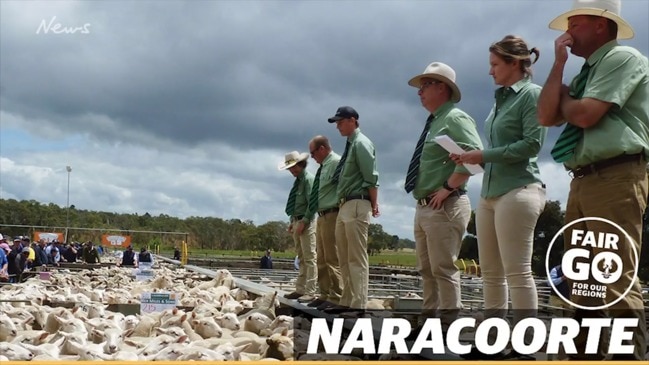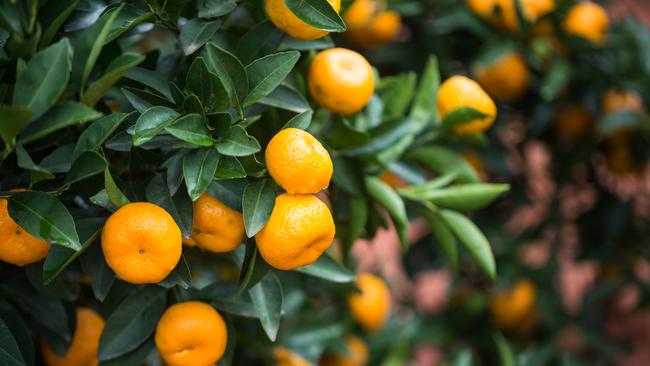Close to 500 fines issued through random quarantine roadblocks
There will be more random quarantine roadblocks in South Australia this season, after almost 500 fines were issued in the past financial year.

SA Business
Don't miss out on the headlines from SA Business. Followed categories will be added to My News.
- Fruit fly crackdown means $375 fine
- Fruit fly outbreak just across the border
- SUBSCRIBE NOW: 50c/day for first six months — Find out more
Close to 500 fines worth $375 each have been issued through random quarantine roadblocks in the past financial year, with one tonne of prohibited fruit seized.
On the back of these figures, random quarantine roadblocks are being further ramped up this coming season, in a bid to protect South Australia’s horticultural industries from the threat of fruit fly.
PIRSA is currently responding to fruit fly outbreaks at Thevenard on the West Coast and another just across the SA border at Lindsay Point in Victoria.
The state government last year introduced a zero-tolerance approach for random roadblocks to deter motorists from bringing in prohibited fruit and vegetables and putting the $1.2 billion horticulture industry at risk.
The 2018-19 random roadblock campaign had an average noncompliance rate of almost 13 per cent but Primary Industries Minister Tim Whetstone said the rate was improving.
“We saw a drop to under eight per cent for the last four random roadblocks of the season,” he said.
An extra seven roadblocks have been added for the 2019-20 season to bring the total number to 20, with the program focused on the Riverland, the Victorian border and the South East.
Victor Harbor taxi driver Trevor Ablett said there needed to be greater promotion of the zero-tolerance stance, to prevent travellers being slapped with $375 fines.
Mr Ablett received a fine for $375 recently after having an apple in the front of his car when he was travelling back to South Australia from Mildura, Victoria.
“When we stopped and were asked if we had anything to declare, we said “yes, we found this rolling around” and produced the apple,” he said.
“At no stage did we try to hide it, so we asked if we could eat it immediately but were told, no because, if you do you will be charged with concealing the evidence.”

Almost 20,000 vehicles passed through the state’s random quarantine roadblocks in 2018-19. As well as the 494 motorists fined, a further 267 people received formal warnings in the 2018-19 season before the zero-tolerance policy was implemented.
The random roadblock season begins in spring with warmer temperatures leading to fruit flies becoming more active, coupled with a rise in people travelling.
Mr Whetstone said this season’s random roadblock program will extend further into the South East to strengthen entry points into the state.
“It only takes one piece of infested fruit to cause devastation to our horticulture industries and as we have seen recently in Loxton, it costs millions of dollars to eradicate a fruit fly outbreak,” he said.
“The increased roadblock program complements the zero-tolerance approach at the Yamba Quarantine Station to send the message to motorists that if you are travelling into South Australia, leave fruit and vegetables at home or you will be fined.”
